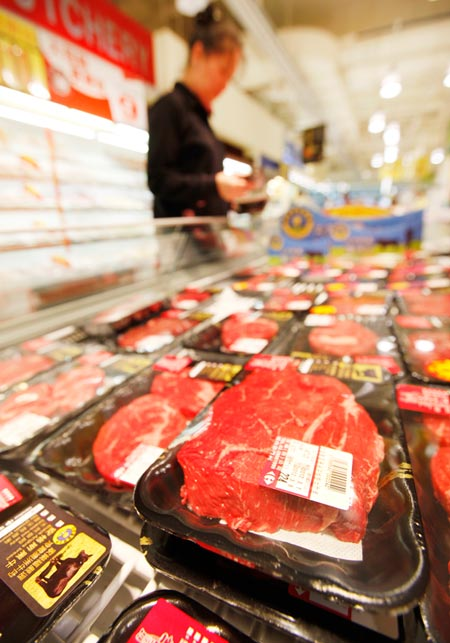COMMERCIAL trials of a new model designed to more accurately predict the shelf-life of red meat and ultimately reduce retail and food service industry waste have shown promising results in a domestic supply chain.
The Tasmanian Institute of Agriculture has developed the new shelf-life prediction tool for beef and lamb, and a retail trial of the model is validating its accuracy.

Australian Government data shows food waste is estimated to cost the Australian economy around $20 billion each year, with Australian consumers throwing away 3.1 million tonnes of edible food a year.
The trial, backed by Meat & Livestock Australia, has suggested that a 10pc reduction in red meat waste is possible as a result of improving cold chain control and accuracy of shelf-life prediction.
MLA program manager for market access science and technology, Dr Ian Jenson, said the model takes a conservative approach to shelf-life and preliminary results from the trial showed the tool is highly accurate.
Funded through the MLA Donor Company, three trials involving three product types have recently been completed. Data analysis for the first trial – shelf-life of vacuum packaged rump roast – has been analysed and results show the product had a much longer shelf-life than what is currently perceived, Dr Jenson said.
The trial saw vacuum-packed beef rump roasts processed and passed through the supply chain under 39 different pathways, with varying storage designations, storage times and storage temperatures.
The time:temperature data was recorded for each pathway along with bacteria testing and a range of other assessments including raw and cooked appearance, colour, odour and flavour.
“The shelf-life observed in this trial matched what was predicted by the beef shelf-life model,” Dr Jenson said. “Further, the model accurately predicted the end or near end of shelf-life. There was only one occasion when the model predicted the end of shelf-life while product was still acceptable to consumers.”
The model was developed by Tasmanian Institute of Agriculture researchers at the University of Tasmania as part of their role as the MLA Principal Research Organisation for Microbial Ecology and Physiology.

PhD candidate Tai Gardner and Associate Professor Tom Ross at work in a Tasmanian Institute of Agriculture lab.
Principal research organisation leader, associate professor Tom Ross, said detailed, long-term laboratory studies were undertaken and the results then developed into simple computer software.
“It’s great to be able to apply laboratory studies to benefit users in the real world, and to see the model being confirmed as reliable,” he said.
Dr Jenson said the model not only predicts shelf-life, but can subsequently be used to build confidence in the shelf-life of products, simplify the supply chain and provide a range of other benefits.
“Those benefits include better control over product, which leads to less product markdown in stores,” Dr Jenson said.
“For retailers, it means better stock control and management. It also supports greater confidence and more agile science-based decision making about processes, delivery issues, and management of unforeseen breakdowns as they relate to product shelf-life.
“In turn, better management systems will give customers increased confidence in product quality and protect the environment by reducing waste.”
MLA has invested a total of $1.75 million in research work on shelf-life since 2008.
Dr Jenson said the extensive research and development work undertaken in that time has been critical in contributing to the understanding of growth of bacteria on beef and lamb product surfaces and further applications of the work could be expected.
- Updates on the research and details on the shelf-life prediction service are available here.
Source: MLA



HAVE YOUR SAY